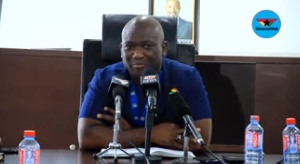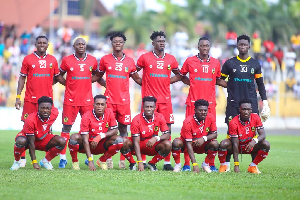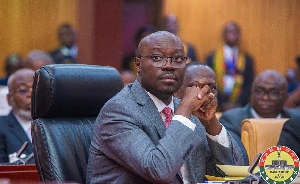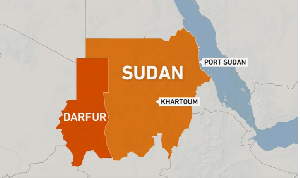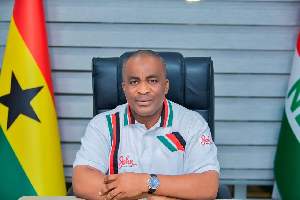Chief Executive Officer of National Petroleum Authority (NPA), Hassan Tampuli has admitted his outfit was taken aback by the recent events that culminated in the strike action.
Hassan Tampuli noted the least they expected was a strike action from the fuel tanker drivers as the internal processes hadn't been exhausted.
The NPA CEO confessed that the issues had been brought to his attention but explained he had just begun investigating the concerns to arrive at an amicable settlement.
Addressing a news conference today at the headquarters of the NPA in Accra after a meeting with reps of the striking union and stakeholders, Hassan Tampuli disclosed that all outstanding issues that led to the strike action will be addressed in a meeting scheduled for week's time.
He pointed to issues with their remunerations and charges for loses made after discharging fuel as basis for the unexpected strike action by the fuel tanker drivers.
"More importantly, we have decided as a group that matters of this nature will be addressed at a roundtable like this one. The event of the last number of days really were matters that took a lot of us by surprise. There was no immediate trigger to the action that has necessitated this meeting. We have continued to engage each other on a regular basis and we are doing this also bearing in mind that there are some actions when we take it's going to likely lead to shortages in different parts of the country. We as a regulator need to do some balancing act such that when you want to fully apply the law to the letter you might also cause some problems in some areas" Mr. Tampuli told the media.
The leadership of the fuel tanker drivers have also resolved to end their strike after declaring they were satisfied with the outcome of the meeting with the NPA and other stakeholders.
Fuseini Iddrisu the General Secreatry of General Transport, Petroleum and Chemical Workers Union of TUC hinted of a meeting on Monday between the tanker drivers and the owners over disagreements of an MoU signed in June last year.
The General Secretary added that the issue with the MoU has to do with the implementation of the agreed measures by parties responsible.
The drivers withdrew their services Monday morning, expressing concerns about their working conditions and welfare, which they said had been ignored for many months even though, they had brought it to the attention of the National Petroleum Authority (NPA).
The drivers wanted the NPA to ensure the full implementation of the contents in the Petroleum Producers Transportation Delivery Retail and Loss Control manual, which was formulated by the Energy Commission in 2004.
But responding to these concerns, The NPA CEO insisted that no party should sidestep the regulations guiding the operations and conduct of the work.
"We have oil loss manual that is in circulation and everybody including transporters, drivers and operators of the stations and the oil marketing companies (OMCs) are expected to adhere fully to the guidelines in the manual, which would mean that, if a driver gets to a station and then the dealer or the OMC fails to adhere to the contents of the manual, the driver has an obligation to boycott that station," Mr Tampuli stated.
Summarising the matters agreed upon in an address to the media, he outlined, "We expect every driver to immediately report to the mother union about any such situation that they may encounter and the mother union will take it up with the oil marketing companies and the transporters. If they are not able to resolve the matter then they can escalate to the NPA for a resolution of those matters. We have also agreed that BOST will rectify the flow meter which some of the parties think its a bit defective. We have identified that those flow meters are very operational, doing very well but there are some deficiencies that they want BOST to look into and I believe BOST has taken it up and in the fullness of time those matters will be addressed."
Click to view details



General News of Tuesday, 25 September 2018
Source: www.ghanaweb.com





